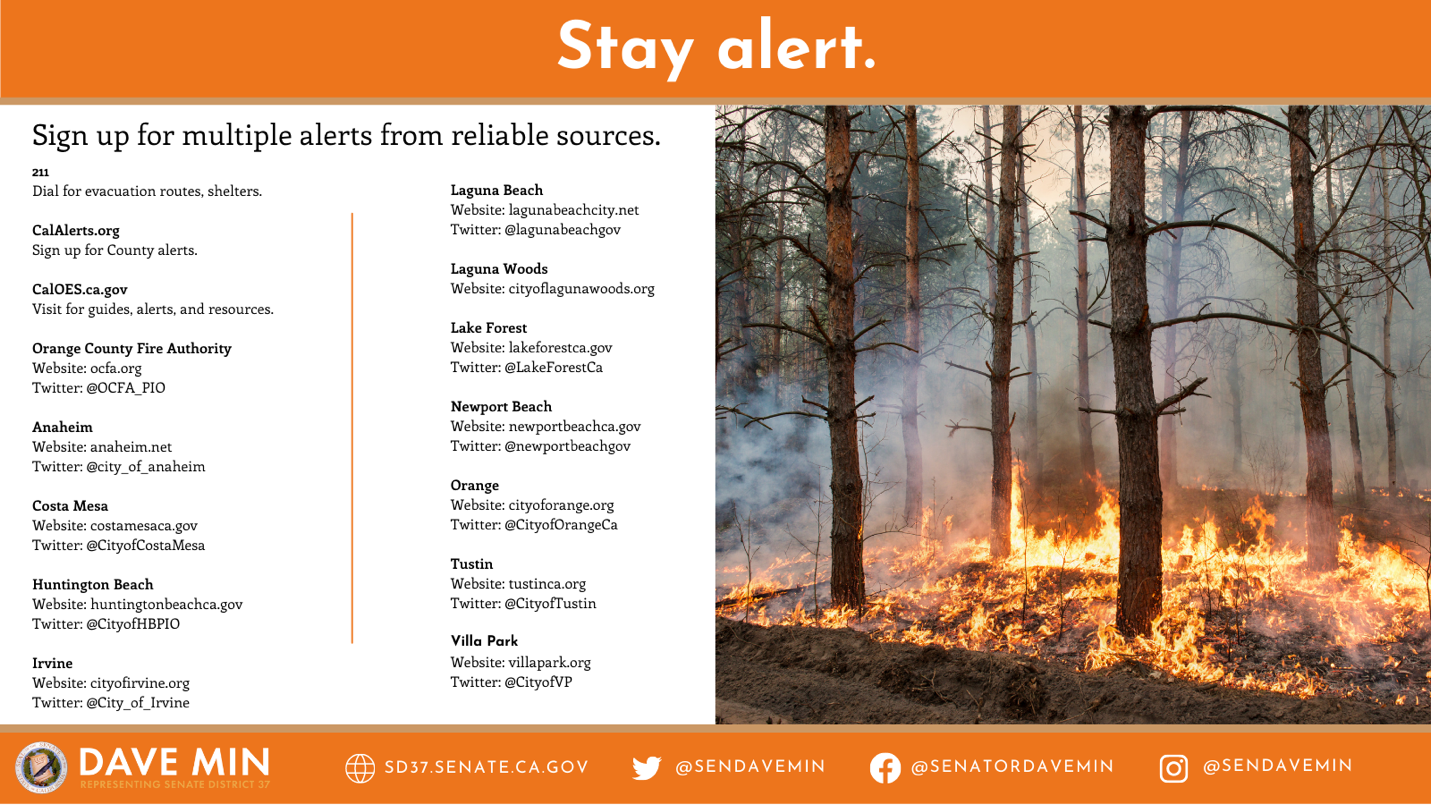Wildfire season is getting longer, and the summers are getting hotter. Last year was the heaviest wildfire season on record with more than 4 million acres burned and over 10,000 homes destroyed. We are poised for an even more destructive wildfire season this year. For that reason, it’s essential we must be as prepared as possible because the next wildfire is not a matter of if but when.
This year, colleagues and I have worked to pass a robust budget addressing wildfire preparedness to ensure the safety of you, your loved ones and your home. Our budget action items include:
- $958 million to advance wildfire prevention and forest resilience investments
- $536 million for a broad set of investments that are currently supporting forest health and fire prevention activities
- $135 million for the Governor's Office of Emergency Services (Cal OES) to strengthen the state's emergency capacity and capabilities
- Plus investments in:
- 30 additional fire crews
- California Department of Forestry and Fire Protection
- Fuel reduction projects
- Firefighting equipment, including Black Hawk helicopters and large air tankers
In addition, I was proud to spearhead an effort to allocate $15 million from the state budget to fund the Phase 2 expansion of the ALERTWildfire cameras. The new phase of this project will provide infrared map of the fuel concentrations of fire-prone areas. This infrared mapping will not only inform fuel reduction efforts in our state, but will also be critical for deploying first responders trying to put out wildfires, by providing a real-time assessment of where fires are likeliest to spread.
The best way to be prepared is to plan ahead. My team and I gathered some resources and best practices here:
Follow the guidance of your local fire department and officials

Prepare a to-go bag and stay box
Learn about different evacuation routes in your neighborhood
Create an evacuation plan for your family
Wildfire Smoke Poses Potential Health Risk
Smoke from the wildfires may pose a health danger to Senate District 37 residents, especially those in certain high-risk groups.
In the event of wildfire, everyone should take precautions to stay cool and drink plenty of water to reduce health risks related to the heat and wildfire smoke. Additional precautions are especially needed for older adults, those with preexisting medical conditions like heart or lung disease, those with disabilities, children, and those who may be working outdoors.
Precautions to Reduce Health Effects of Wildfire Smoke:
- Avoid any vigorous outdoor or indoor activity.
- People with respiratory or heart disease, the elderly, and children should remain indoors.
- Keep the windows and doors in your home closed.
- Use your air conditioner on the re-circulate mode, if available, to limit the intake of outdoor air and keep your home comfortable.
- Keep your airways (nose and mouth) moist by drinking extra amounts of water. This helps your body filter out potentially harmful particles in the smoke.
- Seek medical attention if you have symptoms such as chest pain, chest tightness, shortness of breath, or severe fatigue.